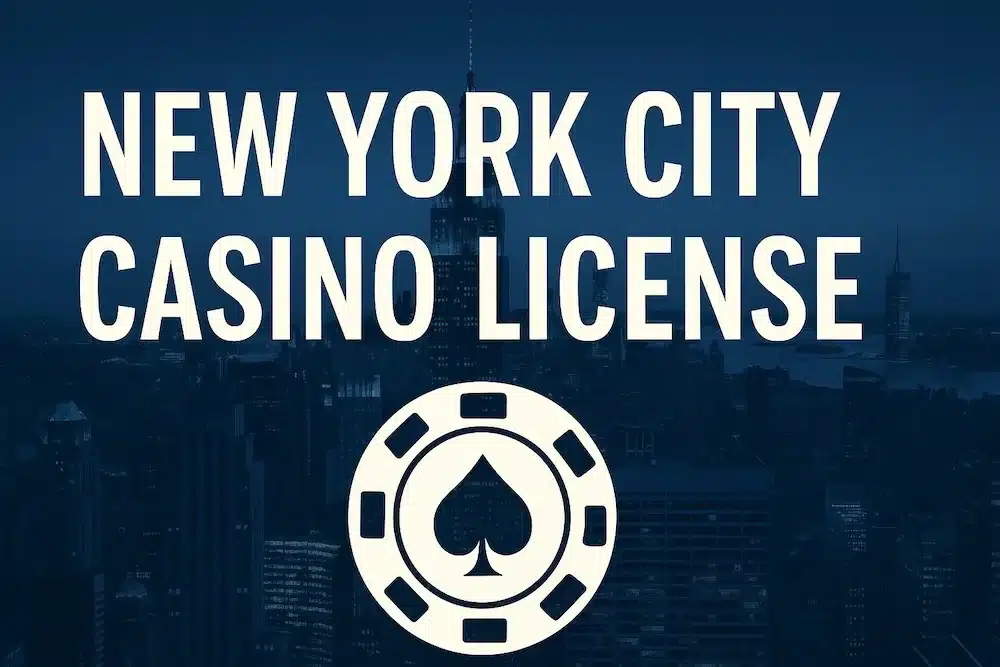There’s something uniquely theatrical about the battle to win a casino license in New York City. It’s a spectacle befitting the city itself — ambitious, glittering, and filled with high drama. As eight competing bids vie for one of just three coveted licenses, the stakes are as high as the towers that scrape Manhattan’s skyline.
Proposals range from the bold to the breathtaking. Imagine, if you will, a Caesars Palace in Times Square — the neon-lit heart of New York — or a sprawling seaside casino hugging the iconic boardwalk of Coney Island. There’s talk of a Hard Rock-branded resort rising next to Citi Field, the home of the New York Mets. These aren’t just pipe dreams. They’re detailed multi-billion-dollar visions, each promising to transform not just the city’s gambling landscape but entire communities.
Yet, as with most things in New York, the path forward is far from smooth. The latest casualty in this high-stakes contest may well be the Bally’s proposal for a Bronx-based casino, slated for the site of a former golf course once operated by Donald Trump’s company. Earlier this week, the City Council blocked a critical rezoning request — a move that could all but end the project before it even leaves the ground.
In fairness, none of the eight proposals are sailing through without resistance. Each must navigate the complex web of local politics, community sentiment, and regulatory hurdles. Public review boards, formed by lawmakers and community leaders, are now tasked with evaluating each plan — balancing promises of job creation, infrastructure improvements, and tax revenue against environmental impact, public safety, and cultural disruption.
Of course, the Bally’s plan wasn’t the only one stirring up debate. The proposal to place a $5.4 billion casino in the very heart of Times Square has sparked fierce division. Proponents argue it will rejuvenate the area, which still bears the scars of the pandemic, especially for local businesses and Broadway theatres. But critics — including the influential Broadway League — fear the opposite. They warn a casino could siphon away tourists and undercut an arts scene still struggling to find its footing.
There’s also the optics of transforming a building that currently houses The Lion King, one of Broadway’s most beloved productions, into part of a casino complex. It’s a symbolic move that cuts deep for many New Yorkers. Yet the developers are pushing back with their own cultural credentials: backing from Jay-Z’s Roc Nation, a promised civil rights museum, and a $250 million commitment to public safety and community programmes. It’s a carefully curated package, meant to win hearts, minds — and ultimately, votes.
Other Manhattan-based bids face similarly fraught terrain. A pair of proposals, one on the East Side and another on the West, are facing scrutiny for their proximity to residential areas. Still, some believe the West Side site — close to the Jacob Javits Convention Center — could find favour with the business community, especially if it’s seen as a draw for out-of-town visitors.
Then there’s Brooklyn. Few boroughs wear their identity as proudly as this one, and it should come as no surprise that the locals are putting up a spirited defence of Coney Island. The area’s famous amusement parks and beaches are part of New York’s soul, and critics of the casino plan fear it would erode public access and compromise the whimsical spirit that defines the boardwalk.
It’s important to note that this isn’t New York’s first dance with casinos. Since 2013, when voters approved the creation of full-scale casinos, four have opened across the state — but none in the city itself. Meanwhile, “racinos” — racetracks with slot machines — have operated for years within city limits. Now, with full licenses on the table, two of these operators may hold a distinct advantage.
Resorts World, for example, is eyeing a $5.5 billion expansion of its Queens location, while MGM has its sights set on transforming its Yonkers Raceway venue into a full-fledged resort. Both companies have infrastructure, clientele, and experience in place — meaning they could bring in revenue almost immediately, a compelling prospect for a state eager for quick returns.
Experts remain cautiously optimistic. Yes, the casino market in the northeastern U.S. is crowded. Yes, online gambling is a growing force. But New York City is unlike anywhere else. Its sheer density, constant flow of tourists, and insatiable appetite for entertainment could well support three major casinos — if they’re strategically located and thoughtfully integrated into their surroundings.
Still, nothing is certain. As ever in New York, dreams must earn their place. Developers can dangle promises of glittering towers, thousands of jobs, and billions in tax revenue. But they’ll need more than polished brochures and celebrity endorsements to win over neighbourhoods that are proud, vocal, and fiercely protective of their character.
In this grand game of chance, the dice are still rolling. And in true New York fashion, it may come down not just to who has the deepest pockets, but who tells the most compelling story.

















